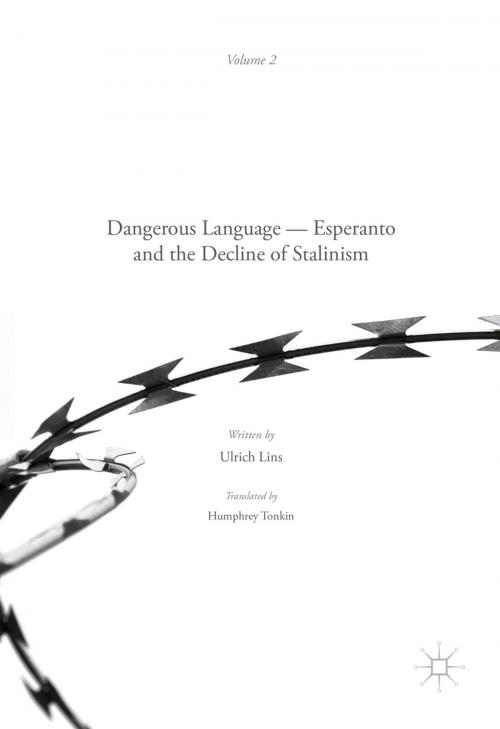Dangerous Language — Esperanto and the Decline of Stalinism
Nonfiction, History, Asian, Russia, Reference & Language, Language Arts, Linguistics| Author: | Ulrich Lins | ISBN: | 9781352000207 |
| Publisher: | Palgrave Macmillan UK | Publication: | February 9, 2017 |
| Imprint: | Palgrave Macmillan | Language: | English |
| Author: | Ulrich Lins |
| ISBN: | 9781352000207 |
| Publisher: | Palgrave Macmillan UK |
| Publication: | February 9, 2017 |
| Imprint: | Palgrave Macmillan |
| Language: | English |
This is Volume 2 of Dangerous Language. This book examines the rise of the international language Esperanto, launched in 1887 as a proposed a solution to national conflicts and a path to a more tolerant world. The chapters in this volume examine the position of Esperanto in Eastern Europe during the Cold War; in particular it explores Stalin’s final years and the gradual re-emergence of the Esperanto movement. At first, its revival was limited to the satellite countries, especially Bulgaria and Poland, but, with Stalinism’s gradual retreat, Esperanto organizations reappeared in most East European countries and eventually in the Soviet Union itself. The progress was uneven, and its details reveal the stresses and strains that became apparent as the solidarity of the Soviet bloc declined. This book will appeal to a wide readership, including linguists, historians, political scientists and others interested in the history of the twentieth century from the unusual perspective of language. This volume is complemented by the sister volume Dangerous Language — Esperanto under Hitler and Stalin which offers a concentration on the creation and early emergence of Esperanto as an international language.
This is Volume 2 of Dangerous Language. This book examines the rise of the international language Esperanto, launched in 1887 as a proposed a solution to national conflicts and a path to a more tolerant world. The chapters in this volume examine the position of Esperanto in Eastern Europe during the Cold War; in particular it explores Stalin’s final years and the gradual re-emergence of the Esperanto movement. At first, its revival was limited to the satellite countries, especially Bulgaria and Poland, but, with Stalinism’s gradual retreat, Esperanto organizations reappeared in most East European countries and eventually in the Soviet Union itself. The progress was uneven, and its details reveal the stresses and strains that became apparent as the solidarity of the Soviet bloc declined. This book will appeal to a wide readership, including linguists, historians, political scientists and others interested in the history of the twentieth century from the unusual perspective of language. This volume is complemented by the sister volume Dangerous Language — Esperanto under Hitler and Stalin which offers a concentration on the creation and early emergence of Esperanto as an international language.















